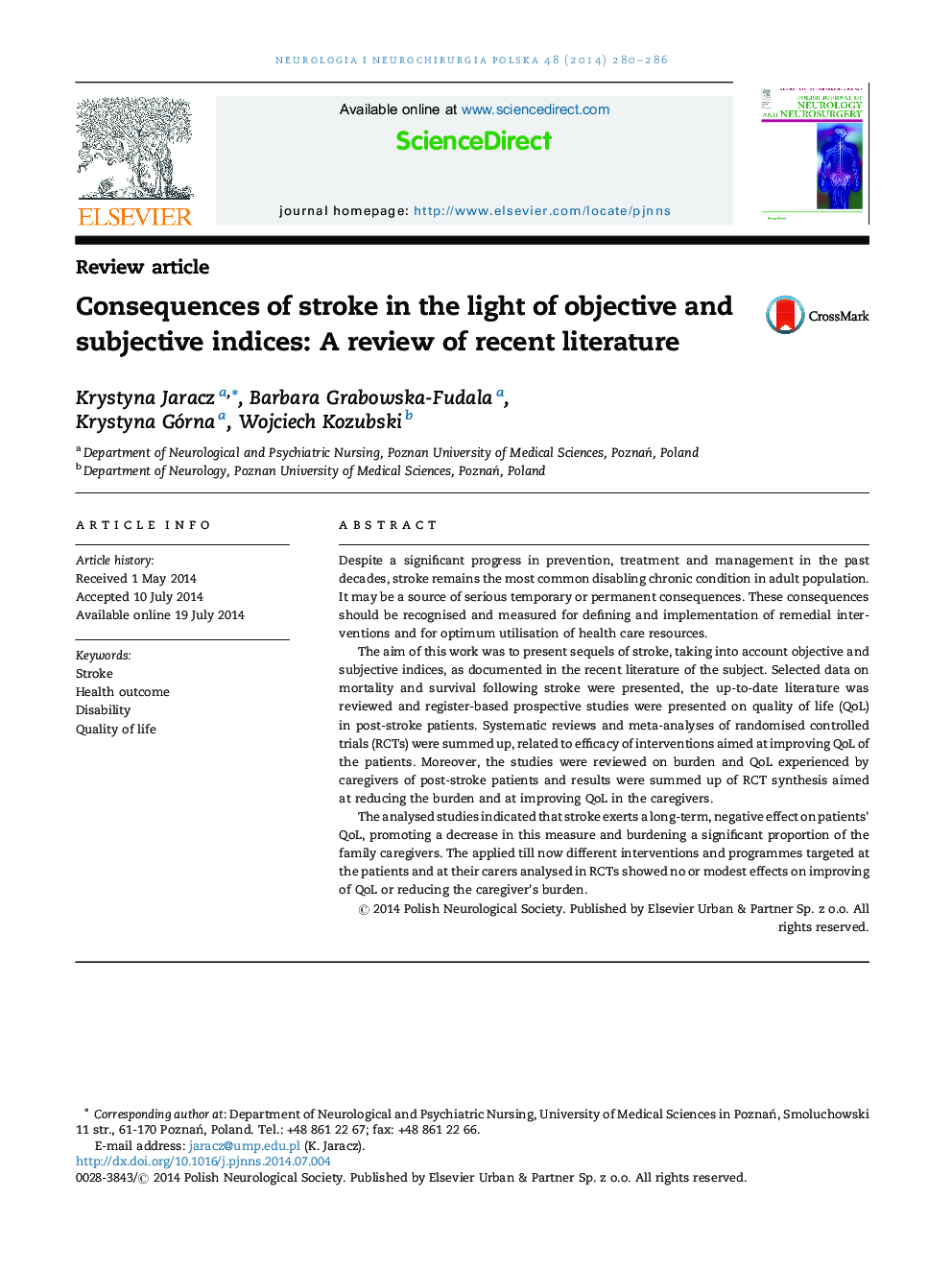| Article ID | Journal | Published Year | Pages | File Type |
|---|---|---|---|---|
| 2152955 | Neurologia i Neurochirurgia Polska | 2014 | 7 Pages |
Despite a significant progress in prevention, treatment and management in the past decades, stroke remains the most common disabling chronic condition in adult population. It may be a source of serious temporary or permanent consequences. These consequences should be recognised and measured for defining and implementation of remedial interventions and for optimum utilisation of health care resources.The aim of this work was to present sequels of stroke, taking into account objective and subjective indices, as documented in the recent literature of the subject. Selected data on mortality and survival following stroke were presented, the up-to-date literature was reviewed and register-based prospective studies were presented on quality of life (QoL) in post-stroke patients. Systematic reviews and meta-analyses of randomised controlled trials (RCTs) were summed up, related to efficacy of interventions aimed at improving QoL of the patients. Moreover, the studies were reviewed on burden and QoL experienced by caregivers of post-stroke patients and results were summed up of RCT synthesis aimed at reducing the burden and at improving QoL in the caregivers.The analysed studies indicated that stroke exerts a long-term, negative effect on patients’ QoL, promoting a decrease in this measure and burdening a significant proportion of the family caregivers. The applied till now different interventions and programmes targeted at the patients and at their carers analysed in RCTs showed no or modest effects on improving of QoL or reducing the caregiver's burden.
